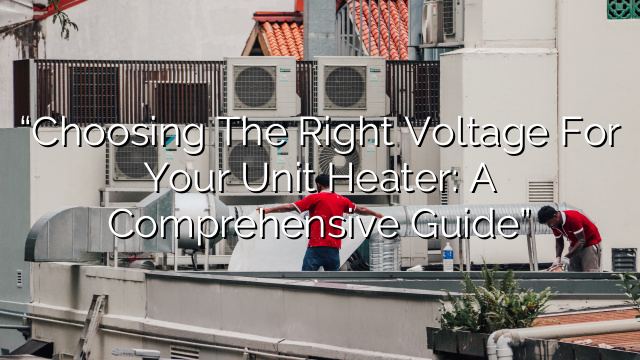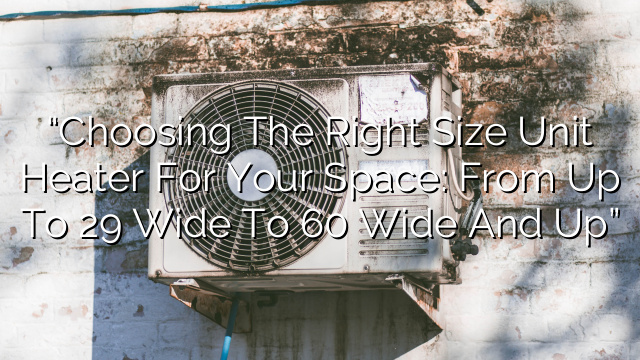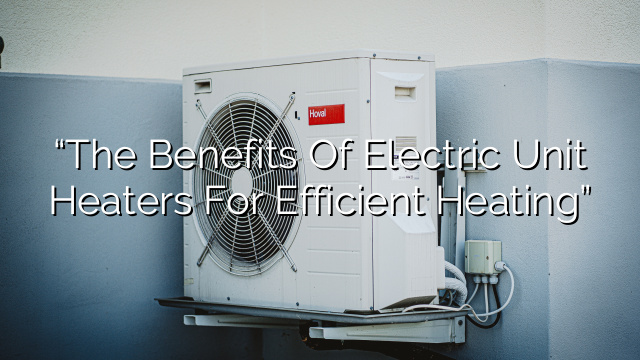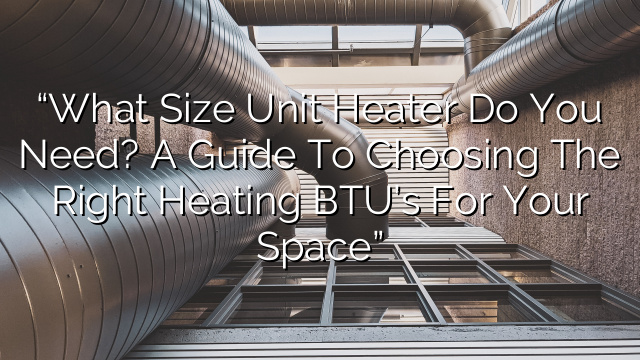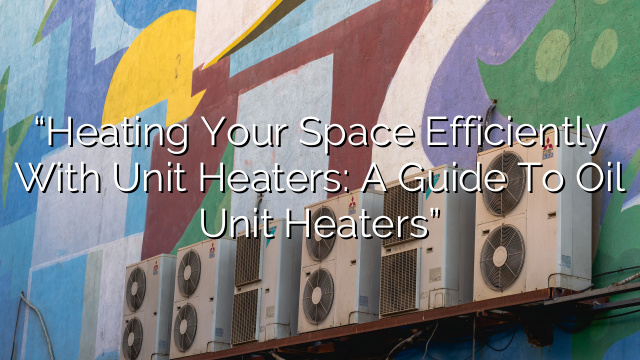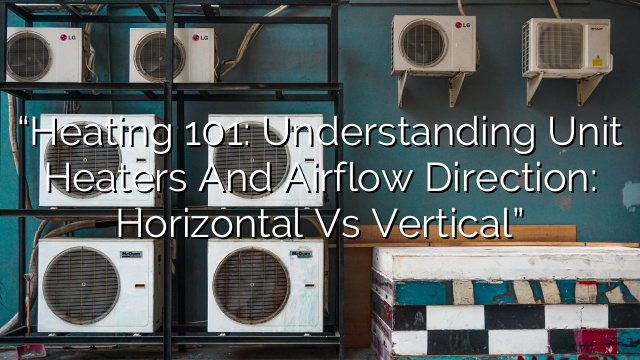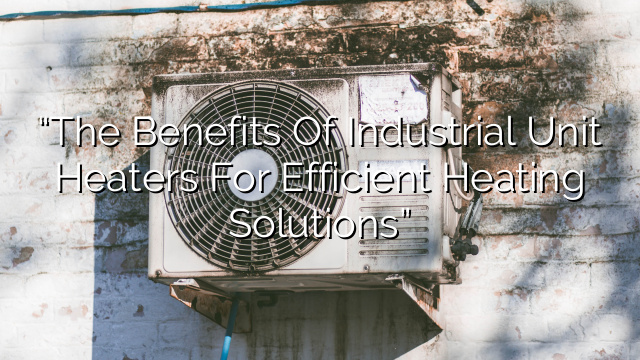Introduction
Choosing the right voltage for your unit heater is an important decision that can significantly impact its performance and energy efficiency. With various voltage options available, it can be overwhelming to determine which one is best for your specific heating needs. In this comprehensive guide, we will explore the different voltage options for unit heaters and provide you with the information you need to make an informed decision.
Types of Voltage for Unit Heaters
Unit heaters are typically available in the following voltage options:
- 24 Volts: This low voltage option is commonly used in residential applications where the heating load is relatively small. It is often used in conjunction with a separate control system.
- 120 Volts: This standard voltage option is suitable for small to medium-sized unit heaters. It is commonly used in residential garages, workshops, and other similar spaces.
- 208 Volts: This voltage option is commonly used in commercial and industrial applications. It is ideal for medium to large-sized unit heaters that require more power to effectively heat larger spaces.
- 240 Volts: This voltage option is similar to the 208-volt option and is commonly used in residential, commercial, and industrial applications. It is suitable for medium to large-sized unit heaters.
- 277 Volts: This voltage option is commonly used in commercial and industrial applications. It is ideal for medium to large-sized unit heaters that require more power to effectively heat larger spaces.
- 480 Volts: This high voltage option is commonly used in industrial applications where large amounts of heat are required. It is ideal for large-sized industrial unit heaters.
Factors to Consider When Choosing Voltage
When determining which voltage option is best for your unit heater, it is important to consider the following factors:
- Power Requirements: Assess the heating load of the space you wish to heat and choose a voltage option that can provide sufficient power to meet the heating requirements effectively. It is recommended to consult a heating professional to determine the appropriate power requirements for your specific application.
- Existing Electrical Infrastructure: Consider your existing electrical infrastructure. If you already have a specific voltage available, it may be more cost-effective and convenient to select a unit heater that matches the existing voltage.
- Energy Efficiency: Higher voltages can offer increased energy efficiency compared to lower voltages. However, it is essential to balance energy efficiency with the power requirements of your unit heater to ensure optimal performance.
- Control System: Some unit heaters require a separate control system, which may have specific voltage requirements. It is important to consider the compatibility of your unit heater and control system to ensure seamless operation.
- Budget: Voltage options can vary in cost. It is essential to consider your budgetary constraints when selecting the appropriate voltage for your unit heater.
Benefits of Choosing the Right Voltage
Choosing the right voltage for your unit heater can offer several benefits:
- Optimized Performance: The right voltage ensures that your unit heater is operating at its full potential, providing efficient and effective heating for your space.
- Energy Efficiency: Proper voltage selection can contribute to energy efficiency, helping you save on energy costs in the long run.
- Extended Lifespan: When a unit heater operates at the correct voltage, it experiences less strain and is less likely to suffer from premature wear and tear.
- Compatibility: Choosing the appropriate voltage ensures compatibility with your existing electrical infrastructure, control system, and other heating components.
FAQs
Q: Can I choose a voltage option that is higher or lower than my existing electrical infrastructure?
A: It is generally recommended to match the voltage of your unit heater with your existing electrical infrastructure. However, it is possible to make adjustments or additions to your electrical system to accommodate a different voltage option if needed. Consult a qualified electrician to determine the feasibility of such modifications.
Q: Can I use a transformer to convert voltage?
A: Yes, you can use a transformer to convert voltage. However, it is essential to consider the power requirements of your unit heater and the capacity of the transformer. Consult a qualified electrician to ensure proper installation and compatibility.
Q: Are higher voltage options always better?
A: Higher voltage options can offer increased energy efficiency and power capacity. However, it is crucial to consider the specific requirements of your heating application to determine the most suitable voltage option. Consulting a heating professional can help you make an informed decision.
Conclusion
Choosing the right voltage for your unit heater is a crucial decision that can greatly impact its performance and energy efficiency. Considering factors such as power requirements, existing electrical infrastructure, energy efficiency, control system compatibility, and budget can help you make an informed decision. By selecting the appropriate voltage, you can enjoy optimized performance, energy efficiency, and extended lifespan for your unit heater.

